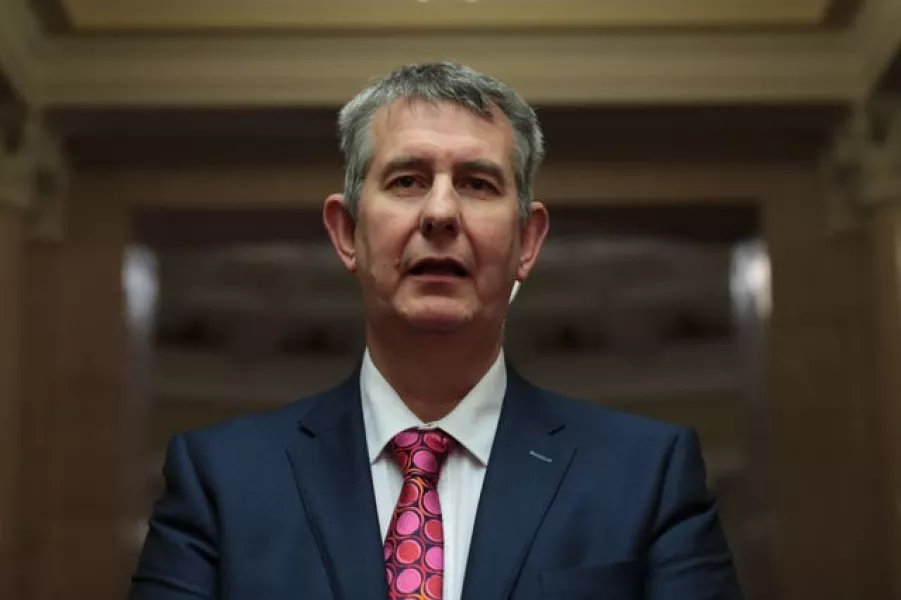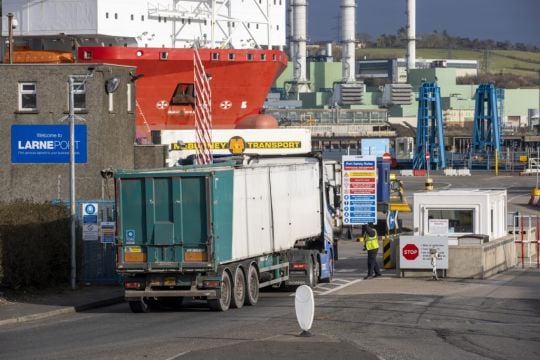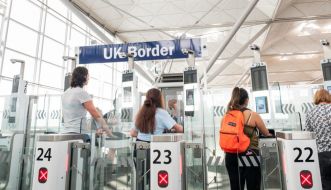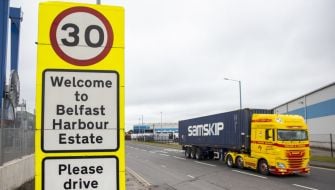It could cost a local authority almost £5 million (€5.8 million( to deliver post-Brexit food standards checks at a Northern Irish harbour once full regulation is introduced.
Each shift at Larne Port would require 17 officers if 100 per cent checks are required following the end of soft-touch grace periods.
The UK government has unilaterally extended grace periods limiting bureaucracy linked to the Northern Ireland Protocol until October.
They had been due to expire at the end of March.
A local authority spokesman said: “Mid and East Antrim Borough Council understands it could be required to provide 72 full-time staff at a cost of almost £5 million to deliver on its obligations at Larne Port for 100 per cent checks to be completed at the end of the grace period.
“Data has been provided to Council by the Food Standards Agency (FSA), and assuming there are no changes, they have advised Council that potentially each shift at Larne Port would require a total of 17 officers.
“Council is currently operating four shifts with three staff per shift, so the total staff complement could rise to 17 staff across four shifts – meaning 68 staff would be required.”

Stormont agriculture minister Edwin Poots said the prospect of Northern Ireland having to carry out the same number of agri-food checks as the EU does as a whole was neither sensible nor rational.
DUP leader and Stormont First Minister Arlene Foster has urged Boris Johnson to “stand up for Northern Ireland” and ditch the “intolerable” Protocol governing Irish Sea trade post-Brexit.
She added: “Not a single unionist party in Northern Ireland supports this unworkable Protocol.
“Rather than protect the Belfast Agreement and its successor agreements, the Protocol has created societal division and economic harm.
“Whilst grace periods have been extended unilaterally, we need a permanent solution so business can plan and the integrity of the United Kingdom internal market can be restored.”
Twelve staff are already employed by Mid and East Antrim Borough Council for work at Larne but extra requirements could equate to an additional 56 members of staff.
This does not take into consideration additional managers; the Council has assumed a minimum of four would be needed.
This would mean 72 staff to deliver the port services required from the council.
It is expected they would need to be qualified environmental health officers, however, this requires further clarification.
The Council statement added: “Based on the information provided by the FSA on the expected increased number of staffing, Council have written to the FSA requesting 100 per cent funding, totalling £4.8 million (€5.6 million), to include the complement of officers and associated costs.”
No written confirmation has been received for the continued funding beyond the end of this month of the 12 EHOs currently employed at Larne Port.
Verbal confirmation has been given that they will be funded for the next 12 months.
The protocol was agreed by the EU and UK during the withdrawal negotiations to prevent a hard border on the island of Ireland.
It achieves that by keeping Northern Ireland in the EU single market for goods, with regulatory checks and inspections now required on agri-food produce moving into the region from the rest of the UK.
The new arrangements have caused some disruption to trade since the start of the year as firms have struggled with new processes and administration.
Unionists are opposed to the protocol, claiming it undermines Northern Ireland’s place in the UK internal market.







